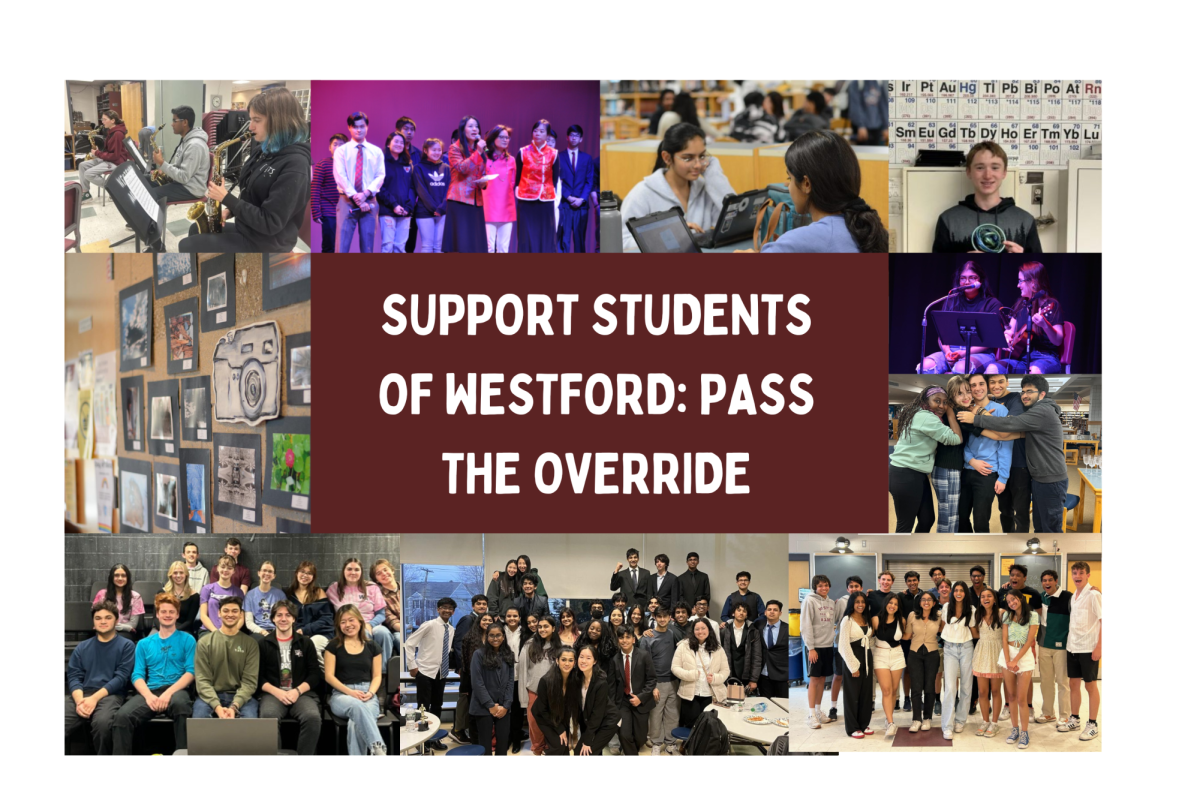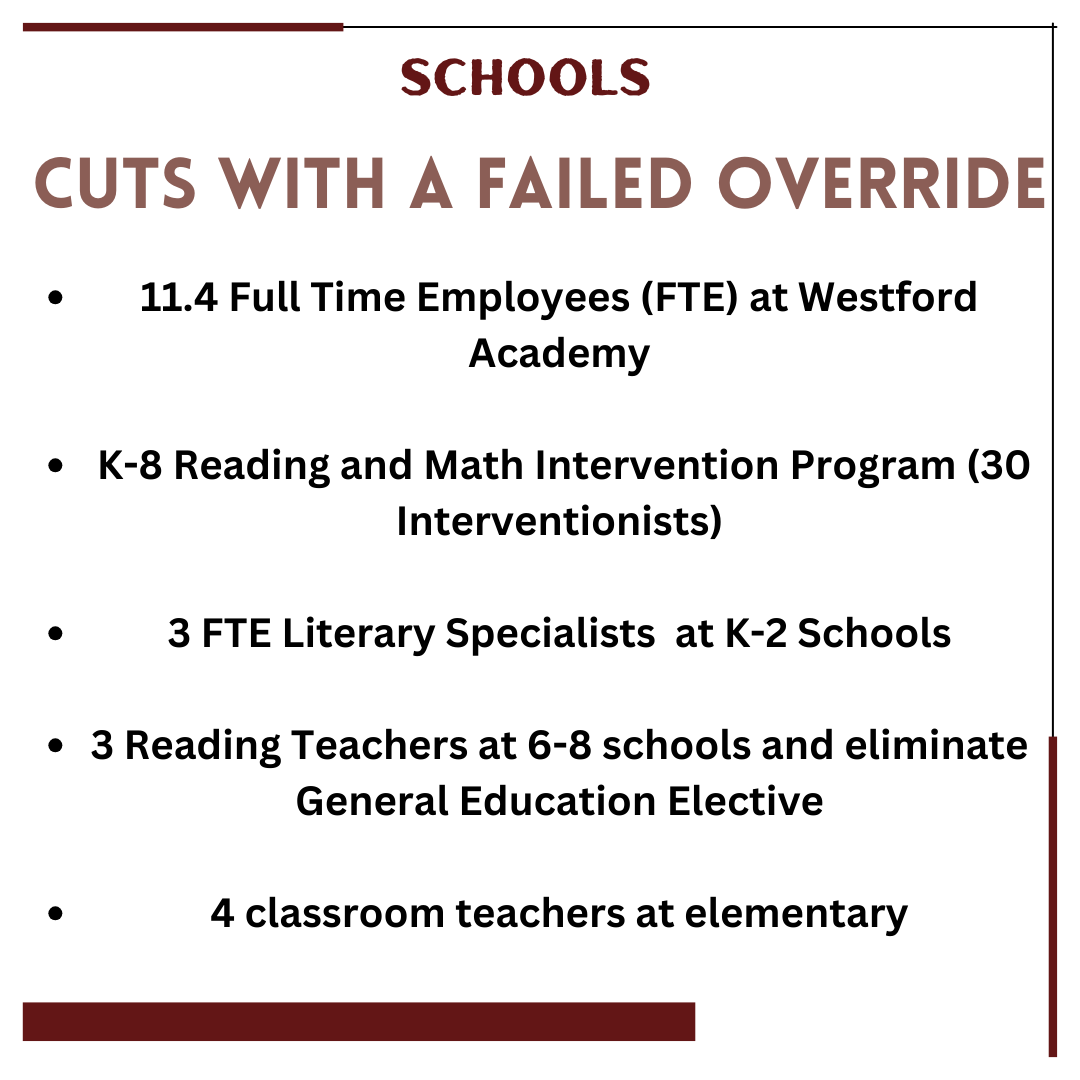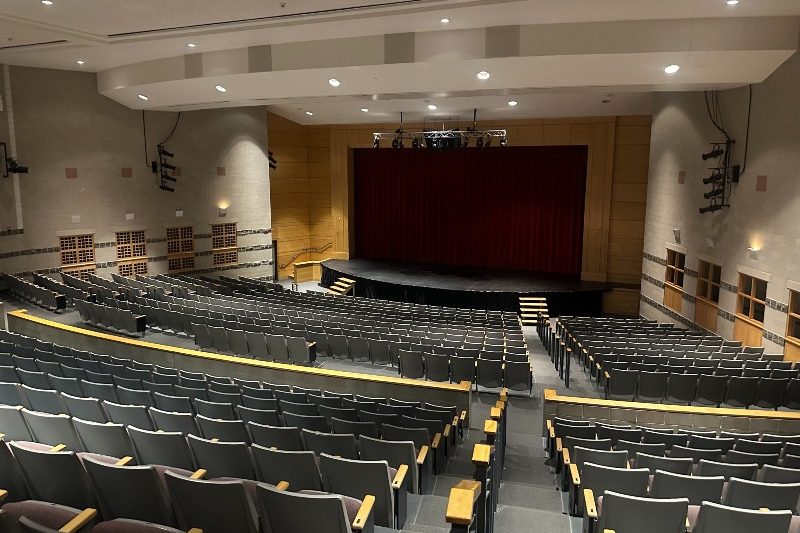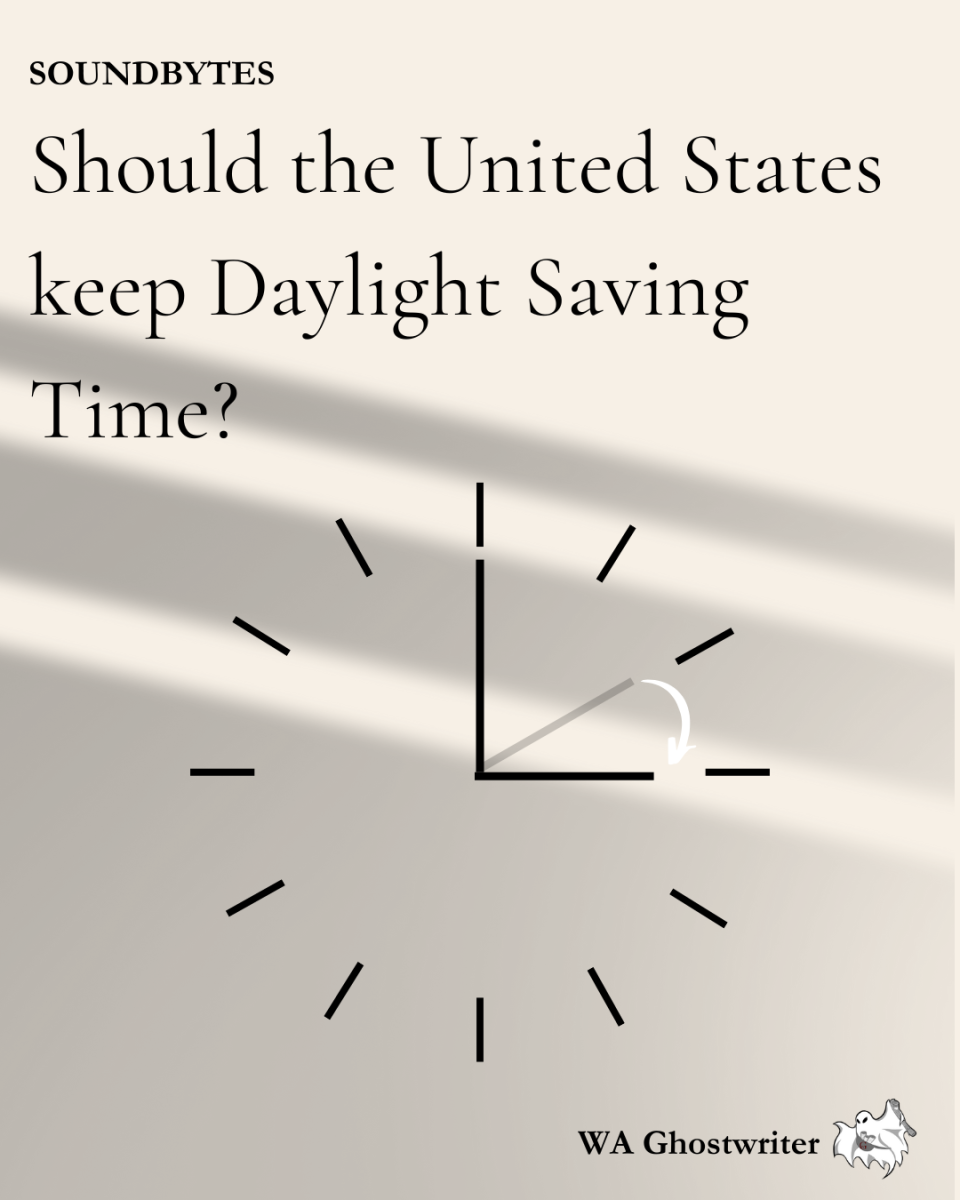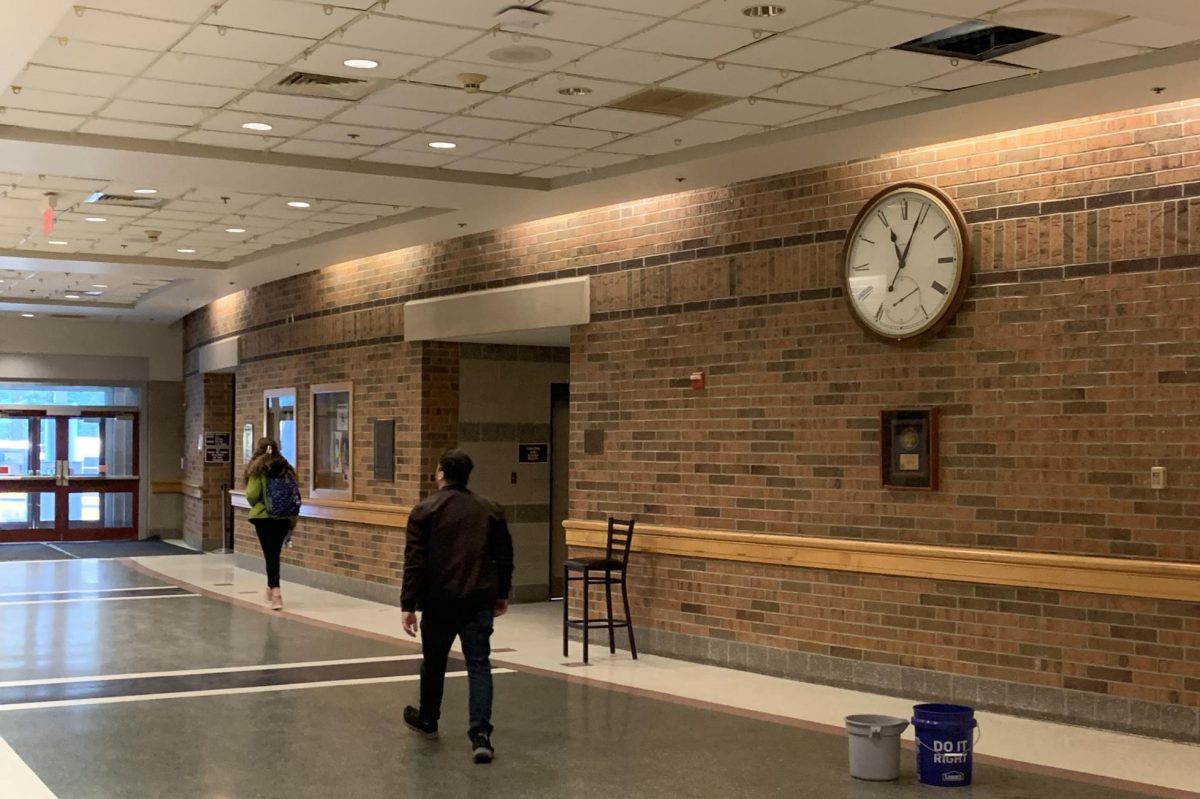Imagine: you receive your schedule, and the class you looked forward to is not there. You go to your guidance counselor, who has 30 more students to help, and they tell you about the new lottery system. The teacher you knew last year is gone, and your favorite clubs are left without an adviser. As you walk into your classes, you are met with overwhelmed teachers and crowded rooms.
As a $6.8 million budget crisis looms over Westford, this may be a new reality for students at WA.
During the annual town meeting on March 23, residents will be faced with a choice to approve the Proposition 2 ½ override for the ballot vote in May, which would save the services we hold dear, or strike it down, and leave our schools struggling to maintain the level of education that students and families deserve. With up to 100 school staff members being cut in a failed override scenario over the next three years, the threat of losing the very resources that make our schools among the highest ranked in the state is one we cannot face. The choice is clear – we must pass the override. There is simply too much to lose.

Looking to the future, students at WA are worried. Worried about the courses they may or may not take. Worried about losing the teachers they have grown close to over the years. Worried about not being able to pursue the future careers and dreams they have worked towards for years. This uncertainty is disheartening and has left students dreading the worst.
The inability to double up on subjects like math and science are among changes that would impact students long term. For countless students, the completion of classes like calculus and advanced sciences is important both for their present interests and future career paths. Not being able to take them in high school not only gives students a disadvantage as they apply to colleges, but deprives them of new learning experiences.
In addition to compromising the academic rigor of WA, the cuts also threaten a variety of electives, such as the music ensembles, ceramics, photography, Mandarin, and even English electives such as journalism. In many cases, these are interests that students have built upon for years, whether it be playing an instrument, writing, performing on stage, or creating art.
Taking away from these programs will create an unimaginable void within the WA community. These electives and extracurriculars are often the highlight of a student’s day. Whether their impact is manifested through WATA’s award-winning productions, stunning band performances, or DECA’s successful national competitions, this is how students learn to love learning. This is what makes WA special for students.
According to Superintendent Christopher Chew, increasing class sizes is another gradual, yet impactful change students would face in the coming years.
Not only will bigger class sizes of up to 30 kids leave many feeling uncomfortable forming connections with their teachers, but it will add stress for teachers who will need to grade that many more assignments. Within a busy school day, students may not feel seen amidst a sea of other classmates.
These conditions will only be exacerbated by the loss of a guidance counselor and the elimination of several key counseling programs, such as Junior Job Shadow Day and the Career Breakfast. As dramatically increased caseloads become the norm, and one-on-one meetings become a rarity, students lose the personal connections that prepare them for life outside of WA.
After all, what does it mean to shape career-ready individuals, when students aren’t able to choose classes that align with their interests and goals? At what point will these cuts compromise the core values that bring students and families to WA?
And yet, it’s not just students at WA who will be facing the consequences of a failed override.
Elementary and middle school students are facing cuts that are just as devastating. All 30 math and reading interventionists will be cut if the override does not pass, replaced with just one academic coach per building. Without the interventionists, already declining literacy rates will only keep falling, and students will fall further behind as they struggle to meet grade level benchmarks. As future WA students, they deserve schools that provide them with services that allow them to be successful in the future.
If we cut down on the quality of education, we will not be the same again, especially as a town that attracts families on the basis of these very schools. The identity that shapes Westford will be gone. We will be unable to recover.
For many residents, supporting the override has been a question of how the tax would impact them, especially as many already face pressures due to inflation. While there is no easy answer, the town does offer a variety of tax relief programs for the elderly, those in the line of duties, those with disabilities, or those going through financial hardship.
While it is undeniably important to hold the town accountable in their financial management year after year, it is also important to look at the greater context in making this sacrifice; Westford is not alone in its large deficit. The impacts of high inflation not reflected in state aid calculations have also left towns such as Acton, Harvard, Belmont, and Groton also facing override situations, revealing a greater, statewide issue that must be addressed.
For Westford, the consequences of a failed override are wide-reaching — and long-lasting. Whether it be a declining school system, having fewer first responders, reduced library hours, or a lack of town maintenance, these cuts put Westford’s most valued resources at stake. With these cuts, the town runs the risk of turning away new families and businesses, and in turn, decreasing property values, letting down families who have invested so much.
With a failed override, in addition to the initial $6.8 million in cuts for FY25, millions of dollars more in cuts are projected in the next three years. This means that deficit, and the cuts associated with it, will not go away if we choose to ignore it. It will simply get worse.
Looking toward our students, they should not have to wait in anticipation, not knowing what the future holds for them. They should not have to wonder whether residents will vote to pass the override or not. Not only should the adults of this town step up and confidently assure kids, young and old, that they have their support, but we, as students, need to step up as well.
As students, it seems as though we have little control over what older residents vote for. However, this is simply not the case. Not only are we incredibly important in influencing our parents and guardians who have the ability to vote, but we can also take other measures to voice our opinions. Something as simple as showing up at the annual town meeting on March 23, holding up signs advocating for the override, or getting involved with groups such as Vote Yes for Westford can make a real impact. Students can also volunteer to help at the town meeting, whether it be by passing out flyers or by offering to help with childcare services in order to ensure the town meeting goes as smoothly as possible.
Our stories are real. And the consequences, they are real too. Seniors who are over 18 – vote. WA alumni – vote. Anyone who cares should vote, and those who care but are not eligible – you are just as important in making this decision as everyone else. No matter how old we are, we all have a voice. It is simply a matter of using it.

